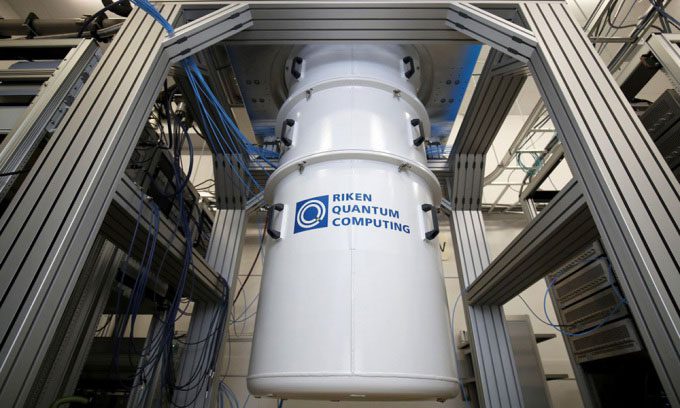The quantum computer developed by the RIKEN research institute went online on March 27, allowing universities and companies to access it.
Japan’s first quantum computer uses superconducting circuits cooled to extremely low temperatures to eliminate electrical resistance, similar to the technology used by American companies like Google and IBM. With 64 qubits, it surpasses the speed of IBM’s 27-qubit quantum computer that became operational in 2021.

Japan’s first domestically developed quantum computer at the RIKEN laboratory in Wako, Saitama Prefecture. (Photo: Sankei/Takumi Kamoshida).
The RIKEN research institute will allow various companies and universities to access the new quantum computer online, harnessing its extremely fast computational power for numerous research projects. Startups can gain expertise in quantum computing applications.
RIKEN plans to gradually expand access to the quantum computer and hopes that its usage will aid in developing technology for devices and software, as well as training human resources in this field.
Unlike traditional computers, quantum computers utilize quantum mechanics, the branch of physics that describes the behavior of subatomic particles like electrons and atoms, to perform calculations. Because they can perform many calculations simultaneously, quantum computers can sometimes easily solve problems that supercomputers would take tens of thousands or even hundreds of millions of years to resolve.
“The launch of this computer is not the goal; it is an important milestone. The race has just begun,” said Yasunobu Nakamura, director of the RIKEN Quantum Computing Center and leader of the domestic quantum computer development process in Japan.
In April 2021, Japan set a strategy to develop a domestic quantum computer. Since then, the RIKEN Quantum Computing Center, along with several other units, has been collaboratively developing the machine. In December 2022, Japan’s first domestically produced quantum computer made significant progress with the operation of a working prototype.
Quantum computers are expected to boost research in fields that require complex computations, such as new material development, medicine, finance, and artificial intelligence (AI). Quantum computers will also facilitate the decryption of information currently encrypted for use on the Internet and in the finance sector.
Japan aims to produce a quantum computer that can be widely used in practice by 2040 and further into the future, but it is estimated that around 1 million qubits will be needed. Currently, only a few dozen to a few hundred qubits are utilized in quantum computers worldwide, making practical use still a distant goal.




















































